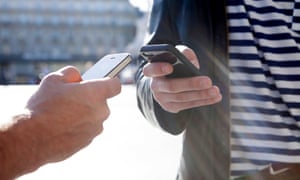Post-colonialism: Edward Said blog task
To complete our work on post-colonial theory, work through the following tasks:
1) Summarise the three theorists we have looked at: Alvarado, Fanon and Said.
Alvarado: Black representation in the media is put into 4 categories: exotic, humorous, dangerous, pitied
Fanon: 'Putting on a white mask'
Said: Exotic and dangerous east vs Civilised west, Them and us
2) Watch the opening of Yasmin (2004) again. Does it offer a positive or negative view of British Muslims? To what extent does it reinforce or challenge Edward Said's theory of Orientalism - that the west is superior to the exotic or uncivilised east?
Positive/Negative representation:
Lack of violent behaviour-positive muslim
Asylum seeker-The guy eating peanut butter-uncivilied
Protagonist stopped by the police-Criminal, negative
Religion-community
Reinforce:
White male symbolise superior west, the female symbolises dangerous east
Challenge:
Yasmine is working with the white driver-doesn't present a binary opposition
3) Finally, choose THREE clips for EACH of the theorists and explain how you could apply that theory to the clip. Pick a selection of clips on YouTube from TV, film, music video or advertising and embed them in your blog before writing your analysis under each clip. Note: this means you need NINE clips in total on this blogpost.
Alvarado
Alvarado
The representation of black people in this film would go under Alvarado's theory 'dangerous'. This is because the 4 african men in the film are criminal masterminds that rob banks and hold up trucks transporting millions of dollars. The representation of the African men could be interpreted as positive too. This is because the men are shown to be intellectually superior to the white cops trying to stop them. Furthermore, the lavish houses and the sports cars that the African men own, would go against Alvarado's 'pitied' because they are represented as wealthy and not in poverty and in need.
Alvarado's 'humorous' would be applicable in this excerpt through the parody of what's seen as tough and the expectation of being a rapper. By Kevin Hart showing why he isn't intimidating and doesn't fit the prescription of the tough guy, it goes against 'dangerous' and rather accentuate the humour. By Hart playing on the stereotypes of a tough African male, it enforces the preconception of African representation of 'dangerous' not explicitly but through the imagery Hart paints.
Alvarado's 'pitied' would be applicable in this film because the representation of the African people is shown that they are in poverty, this is done through the manual labour job that they are doing and seen through the rags that they are wearing. Alvarado's 'exotic' would also be applicable because the white people visiting are seen holding cameras, showing that they are documenting life in third world Africa. The representation of 'dangerous' is also seen through the guns and the explosions seen as well as the rebel army seen.
Said
'Them and Us' and 'East vs West' is definitely seen in this trailer. The binary opposition between the east and west is seen on screen as the terrorists vs the heroes. The west is represented as the heroes as they are protecting the civilians by diffusing the bombs planted by the terrorists. The audience can definitely interpret that the east is represented as 'dangerous', as they are trying to detonate bombs causing casualties and destruction.
The representation of the middle eastern protagonists in this film is interesting because they aren't dangerous and intimidating by nature but they are trying to fit in and try to become dangerous. The protagonists trying to be terrorists create humour as it is obvious that they are trying to be someone that they're not. However, the protagonists are represented as 'exotic' through their facial features. But they are also westernised, through their London accents.
Fanon
Will Smith in this film is presented as a father raising a child in poverty. The fact that the film resolves in Will Smith becoming wealthy as a stock broker at the end of the film would enforce Fanon's theory of putting on the white mask. This is because Will Smith is portraying what would be expected from a white man working his way up to success.
Idris Elba, an African British man in this film plays the commander of the special forces team combating the alien trying to consume Earth. By being the commander, a person with authority and power, it could be interpreted that he is 'putting on the white mask'. This is because positions in the work place that hold power and command would generally be with a white person.
By Bolt acting as Richard Branson through sticking on a goatee identical to Branson's, it would be that he's putting on the white mask. However, this could be seen as a parody through the use of humour at the end as well as Blot locking the Richard Branson outside. Fanon's exotic would be applicable here as Bolt is considered a sporting prowess.

